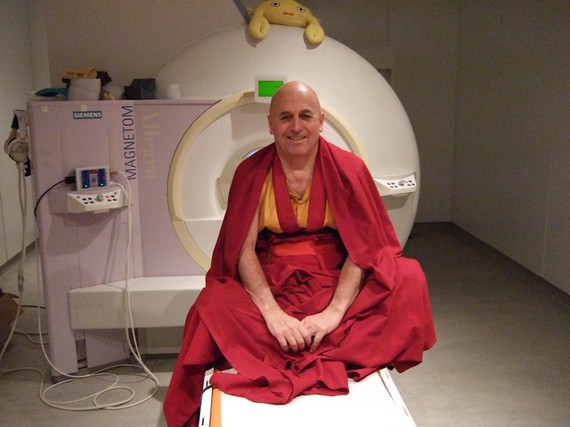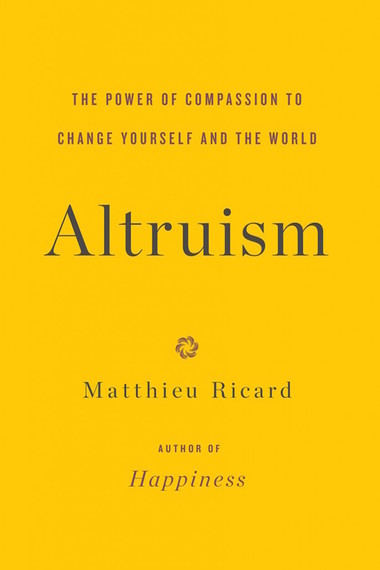How can we cultivate altruism in ourselves?
You will not get altruism just by wishing for it. You need to train. You can do it twenty minutes a day, and you can do it a few seconds every hour. You stop, you look around, and whomever you see, you say, "May that person be happy. May that person flourish."
It's very important to show people the possibility of cultivating altruistic behavior and motivation, in the same way that we cultivate other skills, like playing an instrument or solving mathematical equations. Meditators, of course, for thousands of years, have known from their own experience that they do become better human beings through their practice. However, their testimonials are linked with a particular tradition -- in my own case, with Buddhism. But as the Dalai Lama often says, there is no religion or spiritual path that will satisfy everyone; thus, we need something that is universal, linked with our basic human nature.
We all have a mind, and the mind can be our best friend or our worst enemy. We deal with our mind from morning till evening. Meditation is about becoming more aware of what's going on in your mind at each moment--positive emotions, negative emotions--and cultivating a different state of mind, through mind training and applying antidotes to the negative states. But for many people, the way of the practitioner is still "exotic." If you do yoga and meditation -- good for you -- but that's not considered relevant to society at large. So in our world we also need dialogue and collaboration with modern science; it's indispensable if you want to present a secular approach that can be used in schools, in business and the workplace, in prisons, and so forth.
The last 25 years or so have seen increasing levels of cooperation and collaboration between contemplatives and neuroscientists, psychologists, social workers, and other sectors. It's a tremendous contribution to society. First of all, the old idea that the adult brain no longer changes or grows has now been clearly proven to be completely false. The concept of neuroplasticity shows that the moment you are exposed to something new, whether it's juggling or playing chess or meditating on compassion, you immediately, within a few hours, begin to induce a change in your brain.
We constantly try to improve the external conditions of our lives, and in the end it's our mind that experiences the world and that translates this perception as happiness or suffering. If we transform our way of apprehending things, we automatically transform the quality of our life. And this change is possible. It results from training the mind, which is also called "meditation."
[Part of this post was excerpted from Altruism: The Power of Compassion to Change Yourself and the World (due out in English, June 2nd).]



